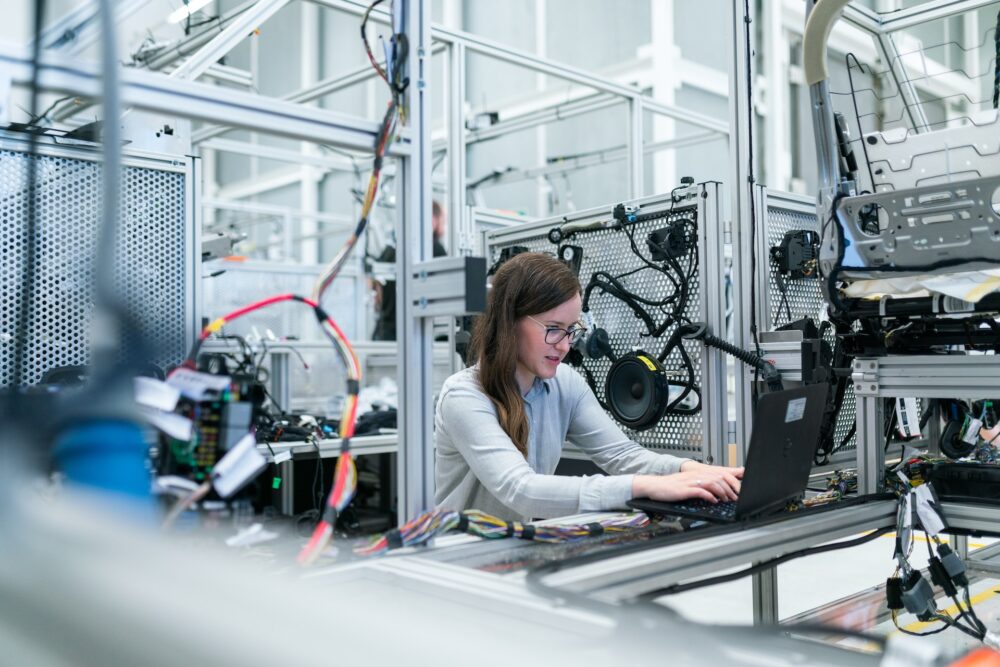AI technology is changing how we interact with the world. Free AI chatbots are now accessible to anyone with an internet connection and private businesses are rolling out their own AI systems. It seems that use of AI has skyrocketed past any previous technology innovation entering the public market. This advancement is a great reminder that technology is ever-changing – and changing fast.
The faster an organisation innovates, the stronger competitive advantage it gains, leading to cost savings and a higher return on investment. Nowhere is this more critical right now than in the manufacturing sector.
Addressing inefficient processes and adapting to more efficient systems in the manufacturing industry is critical to keep up with customer demands. Lack of modernisation can affect an organisation’s customer-facing business and slows teams down, preventing them from doing their best work.
At the same time, manufacturing companies that implemented their first SAP applications many years ago to optimise business operations are no longer on the front foot, as a wide range of new systems and technologies have been established simultaneously around the ERP system. This has resulted in hybrid IT landscapes with high complexity and decentralised data storage. Today, these problems make it difficult for manufacturers to deliver information in real-time and take advantage of innovative technologies.
In a competitive business market, and especially in a manufacturing environment, employees must be empowered with efficient internal systems that run smoothly no matter what. By investing in tech and modernising processes through SAP low-code/no-code app development, manufacturing businesses can, however, stay competitive, avoiding the pitfalls of failing to stay up to date.
Modernise operations to seamlessly manage complex systems
Manufacturing teams work hard to seamlessly manage supply chains across time zones and borders. Putting pen to paper to communicate immediate needs across the company is not only time consuming and reactive, but is also error prone. There’s a real risk of putting vendor relationships on the line by not having the most up-to-date information readily available to the correct teams. Replicated or mishandled inventory also wastes employee time, and is much harder to manage offline.
Similarly, when maintenance happens – unexpected or planned – it needs to occur as seamlessly as possible. The bigger the site, the more complex it can be for teams to manage workflows around stoppages. With the right tools, however, teams are empowered to get assistance efficiently and effectively. Technology like apps, built in-house with low-code/no-code platforms that support SAP or outsourced with a partner, can help organisations address equipment needing service immediately, saving time that would previously be spent waiting for specialist support.
The same is true for internal administration and employee management. Time is money, and the less time spent following a paper trail, deciphering handwritten notes or filling out timecards, the more people can focus on their work. Modernising employee administration puts the power in the employees’ hands, giving them the power to request everyday needs without complication. In turn, their requests are connected to other systems within a business, allowing managers to adjust seamlessly as needed.
Digitising processes drives savings and growth
Beyond driving efficiency, implementing the right technology platforms can drive savings and growth. Lean, effective, and adaptable organisations in all industries are becoming more economically viable and sustainable too. With transformation boosted by low-code/no-code software like Neptune DXP that support platforms including SAP, the manufacturing process can be trimmed to leave room for innovation by automating manual tasks.
With the right support, manufacturing organisations can also count on a significant reduction in training costs and inventory investment, faster planning cycles, a boost in top-line revenue, improved on-time deliveries, and more accurate demand forecasts. With the correct planning and strategic investment, technology can strengthen businesses’ footing in an uncertain economic climate. Let’s start future-proofing a connected, digital manufacturing world.
Neptune Software is a rapid application development platform vendor with more than 730 enterprise customers and over 4 million licensed end users globally. Their mission is to empower IT departments to drive business results. Neptune Software is the leading low-code enterprise app development platform in the SAP market to digitises and optimises business processes and user interfaces – at scale and with ease. The platform gives IT professionals the right tools to rapidly build the apps they need, across IT landscapes.


